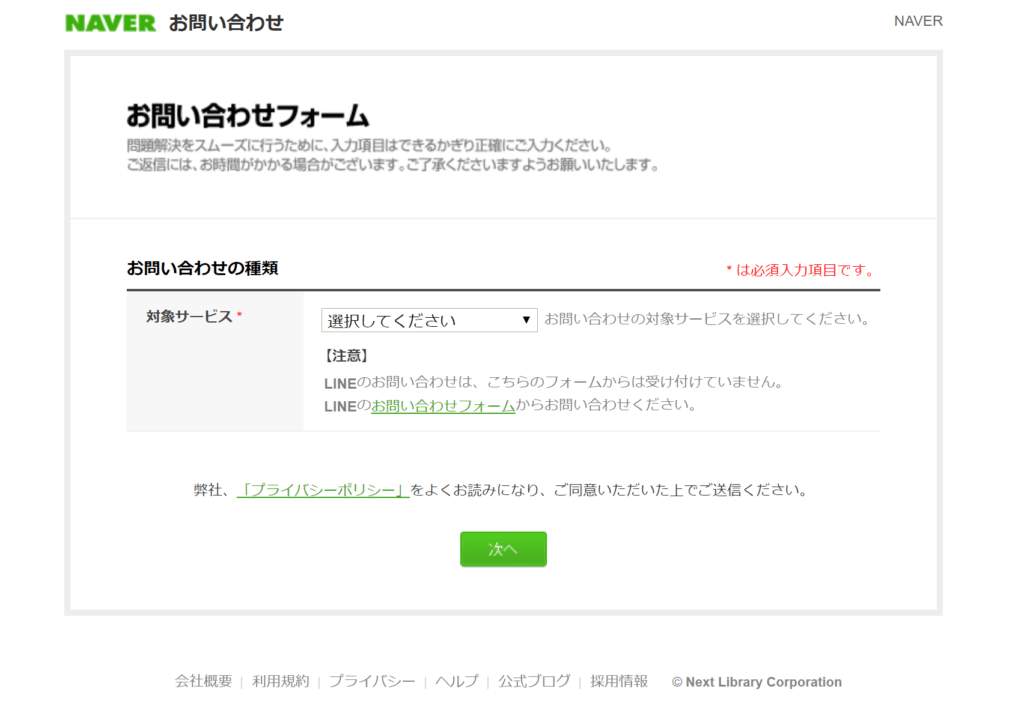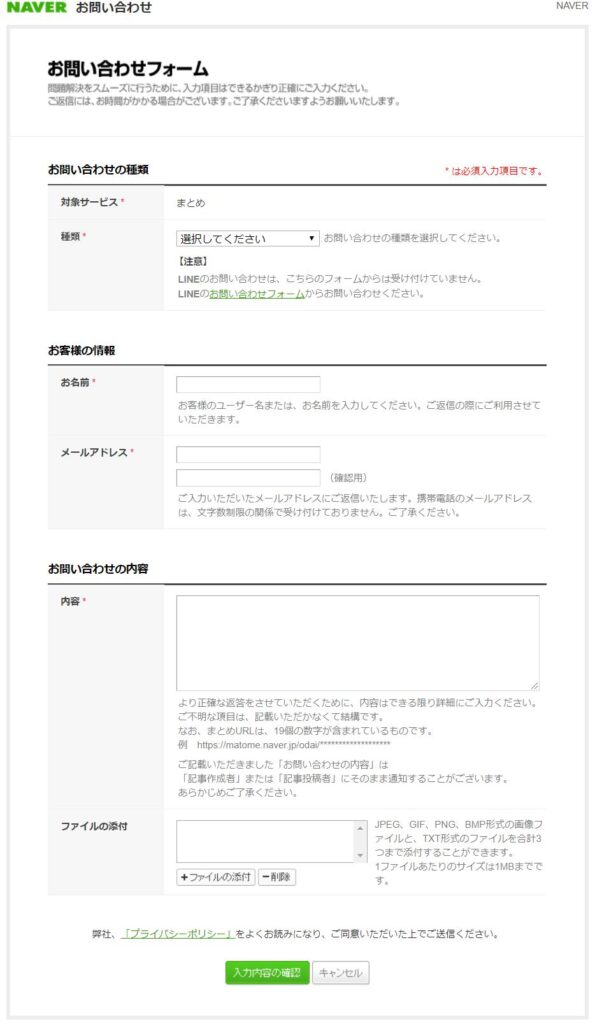What are the Methods to Remove Negative Articles on NAVER Matome?

NAVER Matome is a service that allows you to freely combine various information on the Internet and save and introduce it on a single page. By creating a NAVER account, you can freely combine images, links, tweets, etc. to create articles. There are many articles on NAVER Matome that can be used as references, such as recommended dramas and recipes, but there may also be negative articles posted, such as “The president of XX Corporation seems to have a history of arrest” or “Restaurant YY seems to be reusing parsley and mint”.
In such cases, there is a risk that users who search for company names or restaurant names on search engines like Google or Yahoo, or within the NAVER Matome site, may come across negative articles. If such negative articles are posted on NAVER Matome, is it possible to take measures such as having the article deleted? Also, in what kind of cases would it be better to consult a lawyer?
What is NAVER Matome?
NAVER Matome is a curation service operated by LINE Corporation. Contributors can create and post compilation articles by gathering and combining various information from the internet. Users can find articles of interest by searching within NAVER Matome. Therefore, if negative articles are posted on NAVER Matome, users who search for the name of a company or shop on search engines like Google or within NAVER Matome may see these articles. This could potentially deter them from doing business with that company or hesitate to visit a restaurant.
What are the Negative Articles Posted on NAVER Matome?

When you search for a company or restaurant name on NAVER Matome, you can read summary articles about the respective company or restaurant. Among these articles, there may be negative ones that can be considered defamatory. What kind of negative articles are posted on NAVER Matome? Here are some examples of possible negative articles.
Articles with content like “The president of XX Corporation seems to have a history of arrest”
This refers to articles with content like “The president of XX Corporation seems to have a history of arrest”. Even if there is no actual history of arrest, there may be a person with a similar name or age who has been arrested, leading to confusion. Even in such cases, posting that “there is a history of arrest” could potentially harm the reputation and image of the company.
Articles with content like “Restaurant □□ seems to be reusing parsley and mint”
This refers to summary articles about restaurants with content like “Restaurant □□ seems to be reusing parsley and mint”. Such articles can be useful information for users considering which restaurant to visit, if they are true. However, there may be cases where such posts are made due to misunderstandings by the poster, even if the restaurant is not actually reusing parsley and mint. Even in such cases, if it is posted that “Restaurant □□ seems to be reusing parsley and mint”, the restaurant may suffer damage, such as a decrease in the number of visitors due to the article.
Other baseless defamatory posts and posts causing damage by rumor
There is also a possibility that defamatory articles and rumor-damage articles about companies, individuals, and other services may be posted on NAVER Matome. Such articles should be deleted, just like defamatory posts and rumor-damage posts on anonymous bulletin boards like 5channel (formerly 2channel). For information on how to request the deletion of posts on 5channel (formerly 2channel), please refer to the article below.
https://monolith.law/reputation/deletionrequest-for-2chand5ch[ja]
How to Request Removal for Violation of NAVER Terms of Use

If you believe there are articles that violate the NAVER Terms of Use, you can inquire through the contact form. In the “Target Service” field of the contact form below, select “Summary”.

When you select “Summary”, the following screen will appear.

Furthermore, if you select “Rights Infringement Report” in the “Type” field, the following screen will appear. You can choose the type of rights infringement from “Portrait rights, copyright, privacy rights, publicity rights, defamation, other rights recognized by laws or precedents”, describe the content of your problem and the response you want, and send it.
According to the NAVER Terms of Use, users must not perform the actions listed below, and guarantee that they will not perform these actions.
(1) Acts that violate laws, court judgments, decisions or orders, or legally binding administrative measures.
(2) Acts that may harm public order or good morals (including posting, publishing, publicizing, or transmitting expressions that include excessively violent expressions, explicit sexual expressions, and other antisocial content that cause discomfort to others).
(3) Acts that infringe the rights of the Company or a third party (including intellectual property rights such as copyrights, trademark rights, patent rights, honor rights, privacy rights, and other rights under law or contract).
(4) Acts of impersonating the Company or a third party or intentionally spreading false information.
(5) Acts of using the Service for commercial purposes without the prior consent of the Company, acts of seeking encounters or dating with the opposite sex as the main purpose, and acts of using the Service for purposes other than those intended by the Service.
(6) Acts of providing benefits to antisocial forces or other cooperative acts.
(7) Acts of religious activities or solicitation to religious groups.
(8) Acts of collecting, disclosing or providing personal information, registration information, usage history information, etc. of a third party without permission.
(9) Acts that interfere with the operation of the Service by the Company or the use of the Service by other users, and cause trouble to them.
(10) Acts that assist or promote any of the acts corresponding to any of the above items (1) to (9).
(11) Other acts that the Company deems inappropriate.
Reference URL:https://help.naver.jp/rules/[ja]
For example, an article with content such as “The president of ○○ Corporation seems to have a criminal record” is considered to fall under Article 3 (3) of the NAVER Terms of Use. In terms of the type of rights infringement in the contact form, you can select “Privacy Rights” or “Defamation”, and you can report it by setting the desired response to “Delete”.
Examples of Requesting Removal on the Grounds of Illegality
Under Article 3 (3) of the NAVER Terms of Use, which states “Acts that infringe the rights of the Company or a third party (including but not limited to intellectual property rights such as copyrights, trademark rights, patent rights, rights of reputation, privacy rights, and other rights under law or contract),” it is necessary to consider defamation (infringement of the right of reputation). What are the requirements for defamation? The requirements for defamation are as follows:
- Publicly
- Pointing out facts
- Defaming someone’s reputation
For example, if an article stating “Restaurant XX seems to be reusing parsley and mint” is posted, such a statement has a specific meaning. The act of reusing food once provided to a customer and serving it to another customer is subject to certain legal regulations, and being perceived as a restaurant that engages in such practices is disadvantageous for the restaurant in question. The restaurant would argue that it does not engage in such practices. However, please note that even if the requirements for defamation are met, defamation does not occur if the following conditions are met:
- There is public interest
- There is public benefit
- It is true or the truthfulness is recognized
Not limited to the above example, it is necessary to consider whether other defamatory articles or rumor damage articles constitute defamation. However, negotiations for deletion based on such claims and legal arguments may be difficult if you are not familiar with the law. Consulting with a lawyer with extensive knowledge can sometimes lead to smooth deletion. The requirements for defamation are explained in detail in the following article.
https://monolith.law/reputation/defamation[ja]
Removal by Provisional Disposition

If your request to remove an article via the contact form is not successful, you may need to seek removal through the courts. Articles on NAVER Matome can be removed not only through litigation but also through a procedure called provisional disposition. Litigation often takes between 3 to 12 months, even when it progresses quickly, and in some cases, it can take years. On the other hand, if you consult with a lawyer who is knowledgeable about reputational damage, the process from request to removal often takes about 2 to 3 months with a provisional disposition. The flow of provisional disposition is as follows:
- Filing for provisional disposition
- Examination (a procedure similar to oral argument)
- Payment of security deposit
- Issuance of provisional disposition order
- Execution
In the case of provisional disposition, not only legal arguments but also evidence to support those arguments are required. For example, in the case where an article stating “Restaurant XX seems to be reusing parsley and mint” is posted, you would submit:
- The restaurant’s manual
- Written documents such as memos showing that once served food is discarded
as evidence, and argue that “The said restaurant does not engage in practices such as serving once served food to another customer.” However, making such arguments and proving them can be quite difficult without the help of a lawyer. For more details on removal by provisional disposition, please refer to the article below.
https://monolith.law/reputation/provisional-disposition[ja]
Identifying the Poster through Provisional Disposition
If there are numerous defamatory or rumor-based articles posted over a long period of time, you can request a lawyer to make a sender information disclosure request. A sender information disclosure request is a procedure based on Article 4, Paragraph 1 of the Japanese Provider Liability Limitation Act. This procedure requests the disclosure of information such as the IP address, name, and address of the poster of defamatory or rumor-based articles. NAVER Matome has terms of use to prevent the posting of defamatory articles, as mentioned above, but there may be cases where individuals with grudges against certain companies, restaurants, or other services post baseless rumors or defamatory articles. In such cases, if the poster’s IP address is known, there is a possibility of identifying the poster. The procedure for identifying the sender is as follows:
- Request for information disclosure to the content service provider
- Application for provisional disposition for sender information disclosure
- Identify the transit provider
- Application for provisional disposition to prevent deletion of sender information to the transit provider
- Lawsuit for sender information disclosure request
- Identify the sender based on the court’s judgment
After going through the above procedures, if the poster is identified, you can claim damages from the poster for the attorney’s fees and consolation money required to identify the poster. For more details on the sender information disclosure request, please refer to the article below.
https://monolith.law/reputation/disclosure-of-the-senders-information[ja]
Summary
NAVER Matome is a site where numerous articles summarizing information from the internet are posted, making it easy to gather information. However, there is also the possibility that defamatory articles or articles causing reputational damage due to misunderstandings or malice may be posted. For such malicious posts, you can make inquiries through the contact form. Even if you make an inquiry through the form, if no action such as deletion is taken, there may be cases where it is better to request deletion through the court or to identify the poster. Legal claims such as defamation can often be smoothly handled by consulting a lawyer. If you are troubled by defamatory articles or articles causing reputational damage posted on NAVER Matome, it is often beneficial to consult with a lawyer who has extensive knowledge.
Category: Internet





















